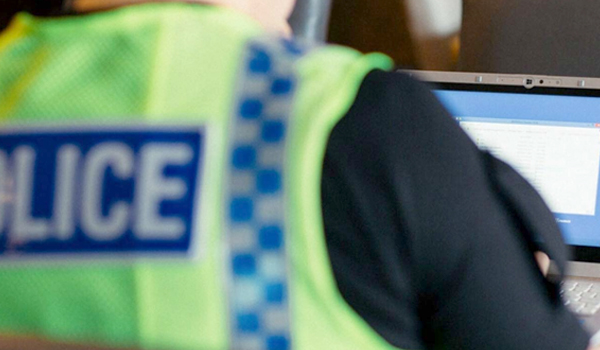Improvements in how forces are recording crime, but too many left unrecorded, says HMICFRS
There has been a marked improvement in the way forces are recording crime, the police inspectorate has said, but further progress is still needed.
In a new PEEL spotlight report, ‘How effectively do the police record crime?’, His Majesty’s Inspectorate of Constabulary and Fire and Rescue Services (HMICFRS) found that over the past decade, forces’ awareness and understanding of how to prioritise and accurately record crimes has increased.
The inspectorate said that in the year ending March 31, 2025, the total number of crimes recorded was more than 5.3 million. And the percentage of overall crime the police have recorded has risen from 80.5 per cent in 2014 to 94.8 per cent this year.
Positively, HMICFRS found that the recommendations made as part of its 2014 inspection on crime recording have all been implemented. These changes have helped support improvements, such as making sure forces allocate the right resources to respond effectively and provide the right service and support to victims.
“Forces that are doing particularly well in this area have leaders who are committed to high recording standards. However, there is still considerable variation between forces in the way they record crime,” said HMICFRS.
It added that while more crime is being recorded, too many offences are still going unrecorded; an estimated 285,000 last year.
There were a small number of occasions when inspectors found forces over-recording crimes, which was slightly distorting the police recorded crime information available;
“Forces usually record sexual offences correctly, and they have improved the way they record rape crimes. But they need to make sure they always record unconfirmed reports of rape,” said HMICFRS.
Inspectors found violent crimes were the least well recorded crime type. HMICFRS said forces need to improve their recording of conduct crimes such as harassment, stalking and controlling or coercive behaviour.
“These crimes disproportionately affect women and girls and account for 37.9 per cent of unrecorded violent crime,” it added.;
In addition, forces need to improve how they record crimes associated with domestic abuse incidents, vulnerable victims and those incidents they categorise as antisocial behaviour personal. They also need to record reports of crime at the earliest opportunity, as only 78.1 per cent of all crimes on average are being recorded and classified within 24 hours.
HMICFRS has made three new recommendations that apply to all police forces in England and Wales, which focus on the accuracy, timeliness and scrutiny of forces’ crime recording.
Forces have also been asked to make sure they are making sufficient progress with four existing recommendations or areas for improvement that the inspectorate has made in previous reports.
His Majesty’s Inspector of Constabulary Roy Wilsher said: “For the public to have trust and confidence in policing, they need to know that when they report a crime, the police will record it accurately and without delay.
“Correctly recording these crimes means forces can quickly allocate cases and begin investigations promptly. Importantly, it also helps to make sure victims receive a better service, and access the support they may desperately need.
“We have seen marked improvements in the way forces record crimes, and a greater awareness and understanding of its importance. I am particularly pleased with the way forces have taken action to implement our recommendations from previous inspections.
“However, there is still more to do. There remains much difference between forces in how well they record crime. For example, violent crimes still aren’t being recorded well enough and the level of crime reporting related to antisocial behaviour remains unacceptably low.
“We will continue to inspect crime recording as part of our 2025–27 PEEL inspection programme, and support improvements in policing, so the public receive the service they deserve.”
Commenting on the findings, the Victims’ Commissioner, Baroness Newlove said: “As this report makes clear, crime recording is improving but progress has been too uneven. For certain victims, crimes simply go unrecorded. Official police data fails to sufficiently capture the experiences of disabled victims, a particularly vulnerable group. This statistical gap is consistent with my own research, which found disabled victims report a poorer police response.
“Alongside this, reports of anti-social behaviour, domestic abuse, and violence that disproportionately affects women and girls are often not recorded in a timely or effective manner.
“This isn’t merely a statistical oversight: when crimes go unrecorded, offenders go unchallenged, and victims lose out twice – first through the offence itself and again when denied recognition and support.
“Low levels of recording also create a distorted picture of risk, masking the true scale of the problem. At the same time, it understates the demand for victim support services, impacting their commissioning and funding – undermining victims’ access to both justice and support.
“Recent gains show improvement is possible – but more needs to be done. Progress must be matched with consistency, so no victim is left behind.”


